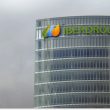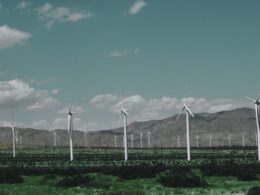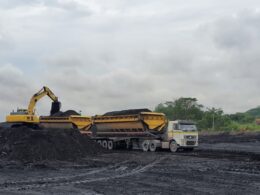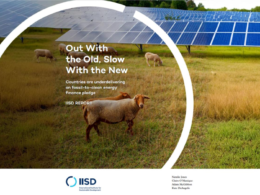As part of its media partnership with the Asia Sustainability Reporting Awards (ASRA) 2024, ESG Post is proud to spotlight leading voices in sustainability across the region. In this exclusive interview, we speak with Mr. Raymond B. Ravelo, First Vice President and Chief Sustainability Officer of Manila Electric Company (Meralco). Meralco recently clinched Silver for Asia’s Best Sustainability Report (Governance) at ASRA 2024. Mr. Ravelo shares his insights on the challenges and benefits of sustainability reporting, the future of ESG disclosures, and valuable advice for companies aspiring to elevate their reporting practices and make a meaningful difference.
Why does your company publish a sustainability report?
Beyond mere compliance with the requirements of our Securities and Exchange Commission, Meralco publishes a sustainability report to demonstrate our continued and heightened commitment towards sustainable development. It also serves as a platform to enhance transparency and build trust with our stakeholders by thoroughly discussing our performance and impact on various environmental, social, and governance (ESG) issues that are material to them.
Which part of sustainability reporting did you find to be the most challenging?
ESG data collection and accuracy remain to be the most formidable challenge year on year. Unlike financial reporting, sustainability reporting involves coordination with multiple departments and stakeholders, making it difficult to ensure consistency, reliability, and timeliness. Balancing transparency with business confidentiality can also be difficult, especially when disclosing sensitive data or negative performance. Despite these challenges, we strive to improve internal systems and drive collaboration among our stakeholders. In fact, we are currently developing a sustainability dashboard which will serve as the digitised repository for sustainability data, with the aim of fostering data accuracy and reliability, ensuring real time availability, and adapting to dynamic reporting standards and requirements.
How has your company benefitted from disclosing sustainability performance?
Disclosing our sustainability performance has resulted in many tangible benefits for Meralco. Internally, through the data that we collect and analyse, we can measure and assess our business operations and footprint and identify and address gaps for greater efficiency and heightened performance. Externally, transparency in sustainability disclosures has strengthened stakeholder trust and enhanced our brand reputation, evident in our sustained high scores in customer satisfaction, customer experience, and employee engagement. Our disclosures also allow ESG raters to rate us objectively according to their respective criteria and methodologies and help potential investors make informed and impartial business decisions.
What steps do you take to ensure that your sustainability report is reliable and credible?
To ensure our sustainability report is reliable and credible, we implement a rigorous validation process that includes both internal and external measures. Internally, we conduct thorough audits and cross-functional reviews to verify data accuracy and consistency. Externally, we engage independent assurance providers to review key sustainability metrics and validate our data and findings, enhancing stakeholder confidence. Additionally, we stay up to date with the evolution of reporting standards and frameworks and benchmark against our peers and industry best practices. We continuously improve our reporting approach to provide meaningful and transparent insights into our sustainability performance.
How do you think sustainability reporting will evolve in the next five years?
I believe that sustainability reporting will undergo significant transformation over the next few years, driven by increasing regulatory pressures, investor demand, and stakeholder expectations. We can anticipate stricter regulations and mandatory reporting requirements across markets, not only for large corporations but also for small and medium-sized enterprises. The adoption of standardised frameworks and reporting standards and the integration of climate-related and nature-related financial disclosures will likely become more widespread given increasing global commitment to climate action and social responsibility.
Additionally, advancements in technology and data analytics will enhance the accuracy of reporting, while third-party assurance will play a more critical role in ensuring credibility. Ultimately, the evolution of sustainability reporting will not only drive transparency and accountability but will also help businesses future-proof their operations and contribute to more sustainable and inclusive economic growth.
What advice would you offer to other companies striving to enhance their sustainability reporting practices and earn recognition in initiatives like the Asia Sustainability Reporting Awards?
My advice to companies looking to enhance their sustainability reporting and gain recognition is to make authenticity, transparency, and impact paramount. This will allow them to not only meet compliance requirements but also build a strong sustainability narrative that resonates with stakeholders and earns recognition.
First, shun greenwashing. Sustainability reporting should reflect genuine efforts and measurable progress. Companies need to move beyond surface-level initiatives and implement meaningful programs that translate to real environmental and social impact.
Second, ensure that disclosures are comprehensive, data-driven, and aligned with globally recognised frameworks. This allows for consistency and comparability across markets and helps build investor confidence.
Third, be transparent about both progress and challenges. Sustainability is a journey, and stakeholders value honesty. Disclosing areas for improvement demonstrates accountability and builds trust.
Lastly, look externally to engage with assurance providers, to benchmark performance against peers, and to keep abreast of evolving regulations and reporting standards.





















